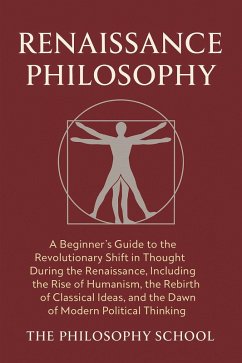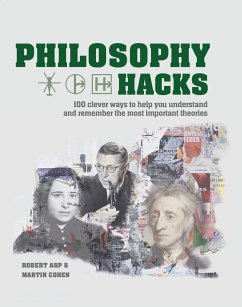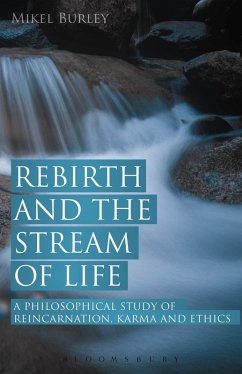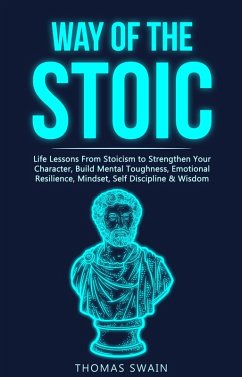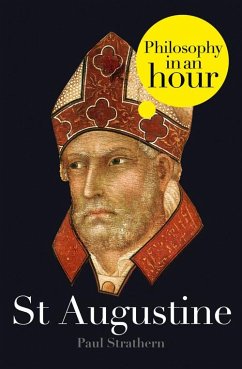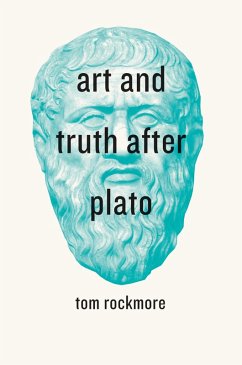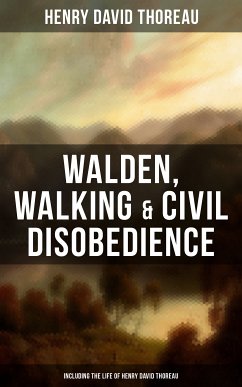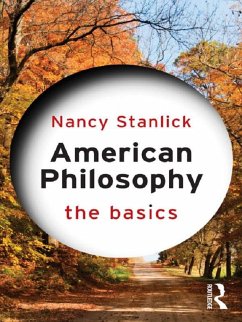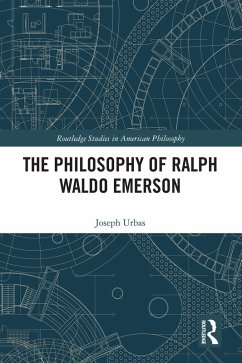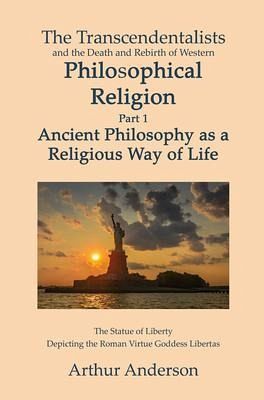
The Transcendentalists and the Death and Rebirth of Western Philosophical Religion, Part 1 Ancient Philosophy as Religious Way of Life (eBook, ePUB)

PAYBACK Punkte
5 °P sammeln!
There really are no books like The Transcendentalists and the Death and Rebirth of Western Philosophical Religion that review the history of Western philosophical religion over the last 2,500 plus years. My book is a unique synthesis of the insights of many scholars, philosophers and historians from classical antiquity until the present. In a radical departure from the Abrahamic faiths, Emerson, Thoreau and the Transcendentalist movement in 19th century Unitarianism saw the locus of religious authority as residing within the individual rather than a religious organization or sacred text. Ancie...
There really are no books like The Transcendentalists and the Death and Rebirth of Western Philosophical Religion that review the history of Western philosophical religion over the last 2,500 plus years. My book is a unique synthesis of the insights of many scholars, philosophers and historians from classical antiquity until the present. In a radical departure from the Abrahamic faiths, Emerson, Thoreau and the Transcendentalist movement in 19th century Unitarianism saw the locus of religious authority as residing within the individual rather than a religious organization or sacred text. Ancient philosophy as a religious way of life also saw the locus of religious authority as residing within the individual. The classics were center stage in American thought during the founding and early days of the United States and the Transcendentalists were powerfully influenced by classical thought.
Ancient philosophy as a religious way of life emphasized the pursuit of virtue and happiness in this life through critical thinking and free inquiry. As much as possible in Part 1, I let the ancients speak for themselves through quotations from surviving public domain classical works. I think many of these quotations have been underappreciated by scholars and will be quite thought provoking for both scholars and general readers. After Christianity became the state religion of the Roman Empire, philosophy would be forced into a role of subservience to religious creeds as I will explore in Part 2. The Enlightenment freed philosophy from the chains of religious creeds but philosophy has yet to reachieve the status it held in classical antiquity as a respected and influential religious way of life. Many critical thinkers now see dogma about the supernatural as the defining characteristic of religion. They view religion as anachronistic and a mode of human experience that has no relevance to their lives. A recent Gallup poll reports that membership in religious organizations among Americans has dropped to 47% -- down from 70% in 1999 -- with only 36% of millennials reporting membership in a religious organization. The poll also reports that this drop is completely without precedent.
One of my goals for my 2-part history is to give readers a fresh perspective on the possible relevance and role of religion in contemporary life through an understanding of religious history that views dogma about the supernatural as nonessential and in the 21st century increasingly counterproductive in religion and religious thought. Religious scholars through the ages have regularly portrayed the history of Abrahamic religion as the triumph of monotheism over polytheism and orthodoxy over heresy. My contrarian perspective is that it is just as important to see the history of Abrahamic religion as the triumph of religious dogma. I like to think that appreciating ancient philosophy as a religious way of life and the influence that classical thought had on the Transcendentalists might serve as an inspiration for the further extension of freedom of thought and critical thinking - a good thing --into 21st century religion. Classical thought might help transform our thinking yet again as it did for America's founders, the Transcendentalists and, before them, the Greeks, the Romans and during the Renaissance and the Enlightenment.
Ancient philosophy as a religious way of life emphasized the pursuit of virtue and happiness in this life through critical thinking and free inquiry. As much as possible in Part 1, I let the ancients speak for themselves through quotations from surviving public domain classical works. I think many of these quotations have been underappreciated by scholars and will be quite thought provoking for both scholars and general readers. After Christianity became the state religion of the Roman Empire, philosophy would be forced into a role of subservience to religious creeds as I will explore in Part 2. The Enlightenment freed philosophy from the chains of religious creeds but philosophy has yet to reachieve the status it held in classical antiquity as a respected and influential religious way of life. Many critical thinkers now see dogma about the supernatural as the defining characteristic of religion. They view religion as anachronistic and a mode of human experience that has no relevance to their lives. A recent Gallup poll reports that membership in religious organizations among Americans has dropped to 47% -- down from 70% in 1999 -- with only 36% of millennials reporting membership in a religious organization. The poll also reports that this drop is completely without precedent.
One of my goals for my 2-part history is to give readers a fresh perspective on the possible relevance and role of religion in contemporary life through an understanding of religious history that views dogma about the supernatural as nonessential and in the 21st century increasingly counterproductive in religion and religious thought. Religious scholars through the ages have regularly portrayed the history of Abrahamic religion as the triumph of monotheism over polytheism and orthodoxy over heresy. My contrarian perspective is that it is just as important to see the history of Abrahamic religion as the triumph of religious dogma. I like to think that appreciating ancient philosophy as a religious way of life and the influence that classical thought had on the Transcendentalists might serve as an inspiration for the further extension of freedom of thought and critical thinking - a good thing --into 21st century religion. Classical thought might help transform our thinking yet again as it did for America's founders, the Transcendentalists and, before them, the Greeks, the Romans and during the Renaissance and the Enlightenment.
Dieser Download kann aus rechtlichen Gründen nur mit Rechnungsadresse in A, D ausgeliefert werden.




